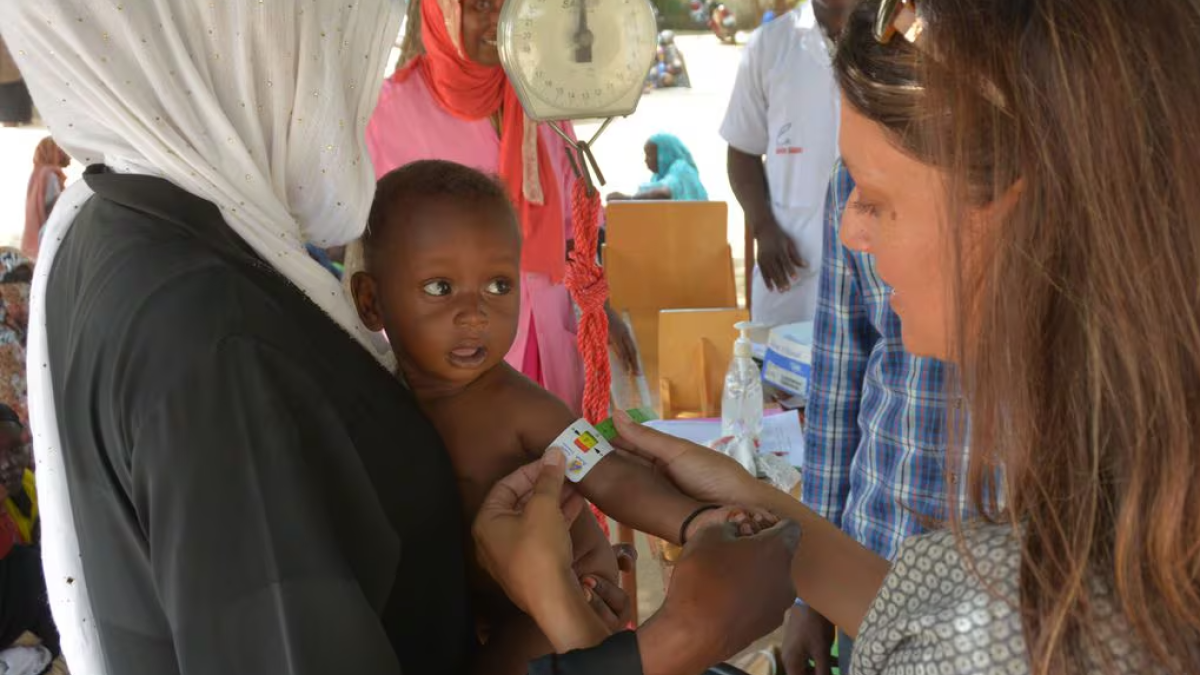Boston Globe: USAID provides $200m to help starving children with food from R.I. and Ga. plants

PROVIDENCE — The US Agency for International Development will use $200 million in federal funds to ramp up production of a peanut-based paste made in Rhode Island and deliver it to starving children in places such Gaza, Haiti, Sudan, Burkina Faso, and Ethiopia.
USAID announced that the funding will fuel the production and distribution of Ready-To-Use Therapeutic Food, or “Plumpy’Nut,” which is made at the Edesia Nutrition plant in North Kingstown and at the MANA Nutrition Factory in Fitzgerald, Ga. The announcement did not specify how much of the $200 million will go into production at Edesia.
But USAID officials said the funding comes at a crucial time when wars in places like Ukraine, Gaza, and Sudan are driving more people to the brink of starvation, climate change is making matters worse, and acute malnutrition is afflicting more than 45 million children globally.
“Children suffer the most during the escalating conflicts around the world,” Edesia Nutrition founder and CEO Navyn Salem said Monday. “Foods like Plumpy’Nut not only save lives, they are a critical component of peace building. I can’t think of a better time for the United States to step up and lead by example. Edesia has the factory, the team, and now the funding we need to make malnutrition history.”
Formed in 2010, Edesia Nutrition is a nonprofit social enterprise named after the Roman goddess of food. It partners with humanitarian aid groups such as USAID, UNICEF, and the World Food Programme, and to date has fed 24 million malnourished children.
The USAID funding comes less than six months after the Bezos family announced it will give up to $137 million to Edesia, helping the nonprofit to double its production and feed 10 million children per year. The family of Jacklyn and Miguel “Mike” Bezos, the parents of Amazon founder Jeff Bezos, is providing $127 million, plus a $10 million matching fund, to Edesia.
Salem said the USAID funding will allow Edesia to send out the stocks it already has on hand and to fill new orders. “So we will be able to get these life-saving therapeutic and supplementary foods to the places where they are desperately needed now,” she said.
Delivering the food to people in combat zones can be very difficult, Salem noted. For example, she said, “I have been working behind the scenes in Gaza to figure out which routes are open, what registrations are needed for (nongovernmental organizations) to operate. We are at the level of tracking trucks and planes and ships that are getting held up. You need 10 plans to get aid where it’s needed because they’re such complicated conflicts.”
Maria Kasparian, Edesia’s vice president of strategic partnerships, “I am very excited to see the US government stepping up as a leader in global nutrition. We have seen how much that leadership can magnify the impact and encourage other countries to also step up.”
Two years ago, USAID provided $200 million in funding, and that led to a total of $577 million to address malnutrition around the globe, she said.
Ready-To-Use Therapeutic Food is a paste made from peanuts, milk powder, soy, oil, sugar, and vitamins and minerals. It does not require water or refrigeration, it can be administered at home, and it can rehabilitate a child under 5 in eight weeks.
The $200 million comes from funds that Congress previously appropriated for fiscal year 2024. The announcement follows advocacy by US Senator Raphael Warnock, a Georgia Democrat, and the four members of Rhode Island’s congressional delegation — US Senators Jack Reed and Sheldon Whitehouse, and US Representatives Seth Magaziner and Gabe Amo, all Democrats.
“This is a critical contribution that will help save the lives of those suffering from severe malnutrition from war, famine, and drought,” Reed said in a statement. “This announcement means more production in Rhode Island, more food to those in need, and more lives saved worldwide.”
Whitehouse said, “Edesia’s partnership with USAID will allow America to help supply immediate nutrition assistance to children around the world, including in Gaza, where the need is severe.”
Magaziner said, “Millions of people around the world in conflict-stricken zones are suffering from food insecurity and malnutrition, and the United States must do its part to combat these crises to help those who are suffering.”
Amo said, “Support from federal programs like this will help Rhode Island continue to produce vital humanitarian assistance, sending a clear message that our state — and the United States — is committed to the fight against food insecurity around the world.”
According to USAID, about 300 million people around the world will need humanitarian assistance this year. In addition to the $200 million, the US is also providing $1 billion in wheat, rice, beans, and cornmeal to people in need throughout the world through the Department of Agriculture.